


Конкурс малих грантів для ОГС
05.01.2022

1. BACKGROUND
1.1 Introduction
The present Call for Proposals (CfP) is administrated by UNDP within Serving People, Improving Health: Support to the Ministry of Health of Ukraine to Respond to the COVID-19 Pandemic project which is financed by the World Bank as is implemented by as a part of the UNDP Democratic Governance Programme. Through this Programme UNDP assists the government, civil society and people of Ukraine in advancing democratic policies and practices needed to accelerate progress on sustainable human development. This includes advocating for human rights and gender equality, supporting anti-corruption efforts, ensuring that all Ukrainian citizens can protect their rights, strengthening parliament, and empowering civil society and youth activists.
The ongoing coronavirus disease 2019 (COVID-19) which was recognized as a pandemic by the World Health Organization on March 11, 2020 has posed unprecedented challenges to healthcare, social and economic systems all around the world. In Ukraine, according to the statistics of the Ministry of Health, as of 27 December 2021 over 3,6 million people got infected and COVID-19 death toll rose to above 95,000.
In response to the continuing spread of the COVID-19 pandemic, Ukrainian government started the vaccination campaign at the end of February 2021. Since then, over 14,6 million Ukrainians got the first dose of vaccine and 13,5 million Ukrainians received the second dose.
Since the beginning of the pandemic, the government of Ukraine has taken a range of different measures to interrupt the transmission of COVID-19, including schools’ shutdown, introducing restrictions at the state border, imposing lockdowns and quarantines.
Though the rate of coronavirus infections in the country has been slowing down recently, the number of daily new coronavirus cases remains quite high and exceeds 15,000.
At the same time, even though risks of exposure to COVID-19 are still high for most of the population of the country, many Ukrainians continue to demonstrate low compliance with physical distancing and avoiding social events. According to the latest WHO research “Behavioral insights on COVID-19 in Ukraine” only 68% of respondents avoided social gatherings and 69% avoided shaking hands. Besides, acceptance of vaccines is still rather low with only 48% of respondents being ready to get vaccinated for COVID-19. The research showed that the core drivers for such low acceptance are safety concerns and worries about the side effects.
Another study conducted by the Kyiv International Institute of Sociology shows that 52% of Ukrainians do not feel comfortable about receiving the vaccine for COVID-19. The main reasons are the belief that existing vaccines were not tested in a proper manner (40%), not effective enough (33%), have side effects which might be worse than the health harm from COVID-19 itself (20%), and 17% of respondents have no trust in vaccination in general. These figures are higher in the South (54%) and East (55%) of the country and among the 30-39-year-old (63%).
1.2 General information
One component of the Serving People, Improving Health: Support to the Ministry of Health of Ukraine to Respond to the COVID-19 Pandemic project focuses on strengthening the patients’ organizations and civil society in the country through supporting them in their medical-social service provision and dissemination of COVID-19 prevention- and healthcare-related messages.
Even though since the beginning of COVID-19 pandemic the Ministry of Health of Ukraine in cooperation with the international partners and donor organizations has been conducting a multifaceted communication and awareness raising campaign on the prevention measures, government health policies and the available support services, the data demonstrate lack of understanding by Ukrainians of the necessity of some of the introduced restrictions, lack of trust and confidence in state institutions and their ability to handle the pandemic, as well as in the vaccination process.
This suggests that the disseminated information does not always reach the final recipient or needs to be adapted to different populations - Ukrainians of different ages, social groups who live in different regions of the country.
In order to close these gaps, obtain feedbacks and keep the vulnerable groups or groups who do not understand the COVID-19 related information or intentionally confront it to become better informed about the COVID-19 prevention, available services and the vaccination campaign, as well as to strengthen the patients organizations and civil society capacity in disseminating healthcare-related messages UNDP will work closely with the Ministry of Health (MoH) and other stakeholders to overcome the challenges to collect feedbacks and ensure improvement of governance capacity to respond to the COVID-19 pandemic, particularly in the crisis management and efficient healthcare communication aspects.
1.3 Main goals and tasks of the competition
Goal: women and men from different groups, especially the most vulnerable, at national and sub-national level increased access to accurate and up-to-date information about the COVID-19 prevention measures, access to COVID-19 testing, treatments and the vaccination campaign. Obtaining feedback of the population living both in urban and remote rural areas, especially those representing vulnerable groups, about the gaps in services which they have or have not received with regards to COVID-19 response.
The target audience are:
- Vulnerable groups
- Elderly;
- People with concomitant diseases;
- Front-line officers;
- Social workers;
- People with lower educational background;
- People with disabilities;
- Young people;
- Rural population.
Main objectives:
- To undertake a public education/awareness campaign and ensure that vulnerable groups at the subnational level have a regular access to the most accurate information on the COVID-19 prevention measures, access to COVID-19 testing, treatments and the vaccination campaign;
- To strengthen the capacity of the population living both in urban and remote rural areas, especially those representing vulnerable groups, in raising their concerns and informing about the gaps in services which they have or have not received with regards to COVID-19 response;
- To enhance the civil society and patient organizations capacity in their service provision and dissemination of COVID-19 and healthcare-related messages;
Under the overall guidance of UNDP, the selected organization/entity will implement the following tasks:
- Develop a detailed methodology and a work plan. The plan should include:
- Region tailored vulnerable group identification;
- Stakeholder mapping of all interested parties including most vulnerable and disadvantaged groups disaggregated by region/local affiliation
- Analysis of the communication channels in terms of dissemination COVID-19 and healthcare-related messages that are relevant to each specific stakeholder`s group.
- Analysis of the existing gaps in the access of the specific vulnerable group (or groups) to the COVID-19 related information, medical assistance, testing and vaccination;
- Methodology design (goals, approaches);
- Communication channels and tools to deliver the messages to this target audience;
- Analysis of feedback mechanisms applicable to the target audience.
- Implementation plan with key deadlines;
- Knowledge, Attitude and Practice surveys description/design;
- Analysis of potential risks and mitigation measures;
- Monitoring and evaluation plan with clear quantification of the information uptake and indicators that measure changed attitudes and/or behaviours.
- Policy recommendations regarding the best means of COVID-19 and vaccination information delivery for each individual target sub-group, identification of the bottlenecks of the delivery process and suggestions of how these can be overcome. In addition, recommendations on the linguistic level of the information for each target group shall be included and best models shall be ascertained.
2. Undertake the planned activities to disseminate the COVID-19 and healthcare-related messages to the vulnerable group(s). The activities may include (but should not be limited to):
- Dissemination of information, communication and education materials with targeted COVID-19 messaging (those that are developed under the MoH and UNICEF guidance; a new batch of materials will be prepared by the launch of the competition).
- Developing visual, graphic and printed materials (infographics, posters, leaflets, and rollups) with the key messages that would be tailored for the specific vulnerable group(s). Disseminate the materials through existing networks/member organizations, locally popular and available opinion leaders, etc. The materials should meet the requirements of the vulnerable groups (translated into local languages, target people with disabilities – sign language, braille).
- Assistance with registration for COVID-19 vaccination (indicator how many people got assistance in getting COVID-19 vaccine).
- Assistance in receiving other COVID-19 services, e.g. COVID-19 testing and treatment service as necessary (indicator is how many people received assistance in receiving COVID-19 testing service, how many were assisted to get doctor consultation and hospitalization).
- Conducting mapping of local media outlets (radio, TV, print) with the wider coverage in the region/area and organising a number of expert interviews/podcasts/opinion editorials on COVID-19 related issues and on challenges the specific vulnerable group(s) faces due to the pandemic.
- Conducting virtual community dialogue (thematic discussions through online platforms e.g. social media) on the specific issues the marginalized groups have to tackle as a result of the spread of COVID-19 and discuss their main concerns and priorities. The dialogue may include NGOs’, social groups, vulnerable groups’ representatives from the neighboring or partner (in case such partnership is established during the Project implementation) region(s), as well as policymakers from regional/local levels.
- Creating a virtual platform (e.g. web page) that would include all the information on COVID-19 prevention, risks, available support and services for the specific vulnerable group(s).
3. Conduct a Knowledge, Attitude and Practices survey to capture the changes in the access of vulnerable group(s) to COVID-19 related information and their knowledge and attitudes towards the COVID-19 prevention measures, access to COVID-19 testing, treatment and the vaccination.
4. Submit the final report. The report should include an analysis and identification of best practices to be used in future awareness raising campaign and recommendations for communication with vulnerable group(s) regarding COVID-19 and healthcare-related issues, as well as vaccination and other response measures. The findings should be supported by the results of the feedback surveys/opinion polls conducted after the implementation of the planned communication activities. The report should also include recommendations for Government (both at the national and local levels), NGOs and international organizations for an inclusive COVID-19 response.
Project proposals will be accepted until 21th of January 2022 (18.00 Kyiv time).
Duration of grant: 3 months from the date of signing the agreement.
The total amount of grant funds allocated under this competition for successful NGOs will be no more than USD 301,000.00. Maximum amount of the application: up to USD 30,000 per grant. Disbursement of funds will be made in national currency (Ukrainian hryvnya) as per UN operational exchange rate on the day of payment. Please refer to the official UNORE site to see the current exchange rate by country.
2. ELIGIBILITY CRITERIA
2.1. Basic criteria
Organisations eligible to receive funding through this Call for Proposals must meet the following basic criteria:
- Be formally registered as a not-for-profit civil society organization or commercial entity in Ukraine.
- Have a stable and sufficient financial capacity to implement the activities described in the section 1.3;
- The proposed personnel (Project manager, Communication Specialist, Designer, Social Specialist will be an advantage) should possess relevant qualification and competencies.
- Have minimum of 3 years of proven track-record experience in public health service provision.
- Have minimum of 2 years of grounded experience in conducting information/awareness raising campaigns at the national/regional/local levels.
- A demonstrated work experience with one or more of the mentioned vulnerable groups in their respective region/district/area will be an asset.
- The bidders should provide at least 2 examples of conducted communication/advocacy campaign that targeted the specific vulnerable group. In addition to the general description of the campaigns, it should include samples of the produced visual, printed or graphic materials description of the services, as well as the analysis of the key achievements (mentions in media, audience reach etc.).
The Applicants are expected to nominate at least one expert for general project management, monitoring, and reporting to UNDP and other project coordination functions.
Proposals submitted to UNDP under this grant competition should include CVs of the main project implementers.
The Applicants are expected to have established appropriate financial procedures and can properly accept and use funds provided under the grant.
Proposals from organisations that do not meet the above requirements will not be considered.
2.2 Criteria for eligible spending
Eligible costs must:
- be necessary for carrying out the project activities;
- have been incurred by the applicant during the implementation period;
- comply with the principles of sound financial management, in particular, value for money and cost-effectiveness;
- be adequately recorded, identifiable and verifiable, and be backed by original supporting documents.
UNDP funds can be used exclusively on:
- staff salaries and expert fees;
- communication and information services;
- purchase of consultative services and contracts provided that these are essential to project goals and objectives;
- renting, catering, and other services envisaged by the project activities;
- printing and copying;
- utility services;
- consumables and supplies;
- travel costs (provided that travel complies with internal UNDP regulations).
The following costs are ineligible:
- costs of project proposal preparation;
- academic research;
- debts;
- currency exchange losses.
The costs of supported projects will only be eligible if they are implemented in accordance with the UNDP Rules and Procedures for the implementation of financial transactions and reporting of CSO grantees.
3. APPLICATION PROCESS
This CFP is advertised on the web sites of the following organisations:
- UNDP Ukraine: www.ua.undp.org/
- GURT Resource Center: www.gurt.org.ua
- Civic Space Portal: www.civicua.org/
- Prostir: www.prostir.ua/
Applications must be developed in Ukrainian or English and according to this CFP and the Application Form. The CFP and the Application Form (attachments in Word and Excel) can be downloaded from the web sites mentioned above.
The application package shall consist of:
1. The filled-out Application form (done on a computer as a Microsoft Word file);
2. Copy of Charter of the applicant organization (PDF);
3. Copy of State registration certificate (PDF);
4. Banking details (PDF);
5. Resumes of proposed specialists for project implementation (Microsoft Word or PDF)
6. Other relevant supporting documentation including reference letters, report samples or others
(Microsoft Word or PDF).
Proposals need to be sent to: [email protected] indicating “Serving People, Improving Health: Support to the Ministry of Health of Ukraine to Respond to the COVID-19 Pandemic” in the subject line of the email. The document package shall be archived as *.zip or *.rar and not be password-protected; it shall not be larger than 10 Mb total. Applications sent through means different from the one described above will not be considered.
To provide answers to questions that may arise during the filling of the application form, a remote consultation will be held on the 18th January 2022 at 14.00 Kyiv time. In order to register for the remote consultation, please send your request to the contact person stated below no later than 24 hours prior to the consultation. In the text box indicate the name of the CSO and the name and contact phone number of the person who will participate in the consultation on behalf of the organisation and your questions. The remote consultation will be held simultaneously for all registered participants.
Contact person: Ivan Gorokh Health Governance Officer: [email protected]
4. SELECTION PROCESS
Criteria for assessment of the applications
The applications shall be assessed by UNDP in accordance with the following criteria:
§ Degree to which the application aligns with the goals of this competition;
§ Proved ability of the team to handle the project activities (e.g. number of people in the team and background of people involved);
§ Demonstrated experience of cooperation with key stakeholders at the regional level;
§ The quality of financial management systems and processes (e.g. budgeting, monitoring, accounting and reporting, internal control systems, procurement, anti-corruption measures); consistency in bookkeeping practices and high quality of financial records.
After the deadline for application submission has passed, UNDP will check the applications against the criteria. At this stage UNDP can request additional information from the applicants at its own discretion.
5. REPORTING, MONITORING AND EVALUATION
5.1. Monitoring and evaluation
Organisations, which are to receive granting support, shall be responsible for monitoring their progress. UNDP will monitor the project implementation through grantee’s reports, meetings with representatives of the supported organisations and their partners, and through ad hoc monitoring visits and possible audit services.
5.2 Reporting
The grantee will submit the following reports:
• Short-term on-demand reports during the project implementation (once per month);
• A final report which include a description of the activities, monitoring and analysis results, conclusions and recommendations;
• Financial report for the whole period of the contract.
Annexes
Detailed budget, Grand budget, Work plan, Performance Targets, Risk Analysis (Excel)
Concept note
Strengthening capacity of CSOs to provide services and disseminate COVID-19 prevention- and healthcare- related messages
Duration: 4 months (3 January 2022 – 30 April 2022)
Background
The ongoing coronavirus disease 2019 (COVID-2019) which was recognized as a pandemic by the World Health Organization on March 11, 2020 has posed unprecedented challenges to healthcare, social and economic systems all around the world. In Ukraine, according to the statistics of the Ministry of Health, as of 27 December 2021 over 3,6 million people got infected and COVID-19 death toll rose to above 95,000.
In response to the continuing spread of the COVID-19 pandemic, Ukrainian government started the vaccination campaign at the end of February 2021. Since then, over 14,6 million Ukrainians got the first dose of vaccine and 13,4 million Ukrainians received the second dose.
Since the beginning of the pandemic, the government of Ukraine has taken a range of different measures to interrupt the transmission of COVID-19, including schools’ shutdown, introducing restrictions at the state border, imposing lockdowns and quarantines.
Though the rate of coronavirus infections in the country has been slowing down recently, the number of daily new coronavirus cases remains quite high and exceeds 15,000.
At the same time, even though risks of exposure to COVID-19 are still high for the majority of population of the country, many Ukrainians continue to demonstrate low compliance with physical distancing and avoiding social events. According to the latest WHO research “Behavioral insights on COVID-19 in Ukraine” only 68% of respondents avoided social gatherings and 69% avoided shaking hands. Besides, acceptance of vaccines is still rather low with only 48% of respondents being ready to get vaccinated for COVID-19. The research showed that the core drivers for such low acceptance are safety concerns and worries about the side effects.
These data have been confirmed by a recent study conducted by the Kyiv International Institute of Sociology. The opinion poll held on 13-15 April 2021 shows that 52% of Ukrainians do not feel comfortable about receiving the vaccine for COVID-19. The main reasons are the belief that existing vaccines were not tested in a proper manner (40%), not effective enough (33%), have side effects which might be worse than the health harm from COVID-19 itself (20%), and 17% of respondents have no trust in vaccination in general. These figures are higher in the South (54%) and East (55%) of the country and among the 30-39-year-old (63%).
Regarding the difference in the attitude of the rural and urban population, the research by Sociological Group “Rating” shows that the number of those willing to get vaccinated is slightly higher among the residents of regional capitals (44%) and small towns (46%) than among those living in big cities (40%).
Challenges
The COVID-19 pandemic jeopardised health, education, and economic systems and all development gains entered into decline. Economies and social ties will face aftershocks for decades, as the world only begins to return to “normalcy” in 2021, and the trajectory of that return is obscure, shadowed by slower-than-anticipated vaccine rollout, new virus strains, economic troubles and political turmoil worldwide. Even though since the beginning of COVID-19 pandemic the Ministry of Health of Ukraine in cooperation with the international partners and donor organizations has been conducting a multifaceted communication and awareness raising campaign on the prevention measures, government health policies and the available support services, the data demonstrate lack of understanding by Ukrainians of the necessity of some of the introduced restrictions, lack of trust and confidence in state institutions and their ability to handle the pandemic, as well as in the vaccination process.
This suggests that the disseminated information does not always reach the final recipient - Ukrainians of different ages, social groups who live in different regions of the country. In addition, it also highlights that the selected channels and sources of communication are not always the most optimal for each individual group of the population. This is especially true for health professionals, including those directly involved in measures to combat the coronavirus pandemic COVID-19; vulnerable social workers; teachers and other education workers whose access to technologies and information usually is limited.
In order to close these gaps and keep the vulnerable groups better informed about the COVID-19 prevention, available services and the vaccination campaign, as well as to strengthen the patients organizations and civil society capacity in disseminating healthcare-related messages UNDP will work closely with the Ministry of Health (MoH) and other stakeholders to overcome the challenges and ensure improvement of governance capacity to respond to the COVID-19 pandemic, particularly in the crisis management and efficient healthcare communication aspects.
Goal
The primary goal of this activity under the project “Serving People, Improving Health: Support to the Ministry of Health of Ukraine to Respond to the COVID-19 Pandemic” funded by the World Bank is to reduce inequalities, increase the access of vulnerable groups, to accurate and up-to-date information about the COVID-19 prevention measures, access to COVID-19 testing, treatments and the vaccination campaign. Considering that 65% of Ukrainian villages do not have an access to Broadband Internet Access and mobile technology, and, therefore, lack the opportunity to receive the latest updates, the activity will be focused on population living both in urban and remote rural areas [1](require to drive 60 minutes or more to reach a populated center with more than 50 000 inhabitants).
This will not only allow to more effectively disseminate messages among the mentioned target audiences but also to document their concerns, priorities, gaps in services which they have or have not received and key issues which then can be taken into account by government, NGOs and international organizations when planning and implementing the inclusive COVID-19 response for these vulnerable groups. Furthermore, the activities will generate data on certain sub-population attitudes to COVID-19 that may be used for research purposes and to better inform the future prevention activities.
Objectives
- To undertake a public education/awareness campaign and ensure that vulnerable groups at the subnational level have a regular access to the most accurate information on the COVID-19 prevention measures, access to COVID-19 testing, treatments and the vaccination campaign;
- To strengthen the capacity of the population living both in urban and remote rural areas, especially those representing vulnerable groups, in raising their concerns and informing about the gaps in services which they have or have not received with regards to COVID-19 response;
- To enhance the civil society and patient organizations capacity in their service provision and dissemination of COVID-19 and healthcare-related messages;
Target audience
- Vulnerable groups
- Elderly;
- People with concomitant diseases;
- Front-line officers;
- Social workers;
- People with lower educational background;
- People with disabilities;
- Young people;
- Rural population.
Eligibility criteria
Organizations eligible to receive funding must meet the following basic criteria:
- Be formally registered as a not-for-profit civil society organization or commercial entity in Ukraine.
- Have a stable and sufficient financial capacity to implement the activities described in the TOR;
- The proposed personnel (Project manager, Communication Specialist, Designer, Social Specialist will be an advantage) should possess relevant qualification and competencies.
- Have minimum of 3 years of proven track-record experience in public health service provision.
- Have minimum of 2 years of grounded experience in conducting information/awareness raising campaigns at the national/regional/local levels.
- A demonstrated work experience with one or more of the mentioned vulnerable groups in their respective region/district/area will be an asset.
- The organizations should provide at least 2 examples of conducted communication/advocacy campaign that targeted the specific vulnerable group. In addition to the general description of the campaigns, it should include samples of the produced visual, printed or graphic materials description of the services, as well as the analysis of the key achievements (mentions in media, audience reach etc.).
The Applicants are expected to nominate at least one expert for general project management, monitoring, and reporting to UNDP and other project coordination functions.
Proposals submitted to UNDP under this grant competition should include CVs of the main project implementers.
The Applicants are expected to have established appropriate financial procedures and can properly accept and use funds provided under the grant.
Proposals from organisations that do not meet the above requirements will not be considered.
The activity aims to reach an equal distribution of grants among different regions and areas (cities/villages) so that no one is left behind.
The activity can cover CSO projects at national, sub-national, regional and local levels.
Every document, including methodology and work plans, visual, graphic and printed materials, deliverable reports (submitted in Ukrainian) should be initially approved by UNDP. No report or document should be published or distributed to third parties without the approval of UNDP.
Scope of work
Under the overall guidance of UNDP, the selected organization/entity will implement the following tasks:
1. Develop a detailed methodology and a work plan
The plan should include:
- Region tailored vulnerable group identification;
- Analysis of the existing gaps in the access of the specific vulnerable group (or groups) to the COVID-19 related information, medical assistance, testing and vaccination.
- Methodology design (goals, approaches)
- Communication channels and tools to deliver the messages to this target audience.
- Implementation plan with key deadlines.
- KAP surveys description/design.
- Analysis of potential risks and mitigation measures.
- Monitoring and evaluation plan with clear quantification of the information uptake and indicators that measure changed attitudes and/or behaviours.
- Policy recommendations regarding the best means of COVID-19 and vaccination information delivery for each individual target sub-group, identification of the bottlenecks of the delivery process and suggestions of how these can be overcome. In addition, recommendations on the linguistic level of the information for each target group shall be included and best models shall be ascertained.
2. Undertake the planned activities to disseminate the COVID-19 and healthcare-related messages to the vulnerable group(s)
The activities may include (but should not be limited to):
- Dissemination of information, communication and education materials with targeted COVID-19 messaging.
- Developing visual, graphic and printed materials (infographics, posters, leaflets, and rollups) with the key messages that would be tailored for the specific vulnerable group(s). Disseminate the materials through existing networks/member organizations, locally popular and available opinion leaders, etc.
- Conducting awareness raising campaign to provide services and disseminate COVID-19 prevention- and healthcare-related messages to women and men from different groups, especially the most vulnerable. The materials should meet the requirements of the vulnerable groups (in case organisations working in the particular disease area, target people with disabilities – sign language, braille).
- Conducting mapping of local media outlets (radio, TV, print) with the wider coverage in the region/area and organize a number of expert interviews/podcasts/opinion editorials on COVID-19 related issues and on challenges the specific vulnerable group(s) faces due to the pandemic.
- Creating a virtual platform (e.g. landing page) that would include all the information on COVID-19 prevention, risks, available support and services for the specific vulnerable group(s).
3. Conduct a Knowledge, Attitude and Practice survey to capture the changes in the access of vulnerable group(s) to COVID-19 related information and their knowledge and attitudes towards the COVID-19 prevention measures, access to COVID-19 testing, treatment and the vaccination.
4. Submit the final report
The report should include an analysis and identification of best practices to be used in future awareness raising campaign and recommendations for communication with vulnerable group(s) regarding
COVID-19 and healthcare-related issues, as well as vaccination and other response measures. The findings should be supported by the results of the feedback surveys/opinion polls conducted after the implementation of the planned communication activities. The report should also include recommendations for Government (both at the national and local levels), NGOs and international organizations for an inclusive COVID-19 response.
The key findings and organizations’ recommendations will be further disseminated to the public, media, national and local authorities, and other stakeholders during the communication campaign conducted by UNDP. This shall include digital, PR and outreach components (including email digests).
Timeline and work plan
|
# |
Activity |
Deadline |
|
Implementation of the activity
|
||
|
· |
Development of TOR and tender announcement |
December 27 - 30, 2021 |
|
· |
Q&A webinar with potentially interested CSOs |
January 18, 2022 |
|
· |
Submission of the proposals |
By January 21, 2022 |
|
· |
Evaluation and selection of CSO proposals recommended for funding. Signature of Vow Value Grant Agreements |
By January 28, 2022 |
|
· |
Joint training session with the grantees |
By February 4, 2022 |
|
· |
Development and submission of work plans by grantees |
By February 10 - 14 2022 |
|
· |
Implementation of the planned activities by grantees |
February – April 2022 |
|
· |
Development of feedback survey(s)/opinion poll(s) to assess the changes in the access of vulnerable group(s) to COVID-19 related information |
By April 18, 2022 |
|
· |
Submission of final reports |
By April 29, 2022 |
|
Development and publication of UNDP’s report on the results of the activity implementation |
By April 30, 2022 |
|
|
UNDP’s communication campaign on the best practices implemented by the grantees |
By April 30, 2022 |
|
[1] https://www.oecd.org/cfe/regionaldevelopment/OECD_regional_typology_Nov2012.pdf
Контакти
- https://www.ua.undp.org/content/ukraine/en/home/get-involved/strengthening-capacity-of-cso-to-provide-services-and-disseminate-covid-19-prevention-and-healthcare-related-messages.html
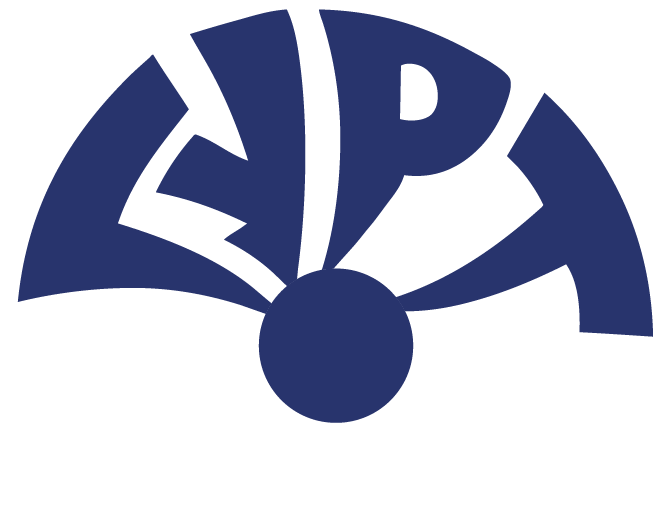

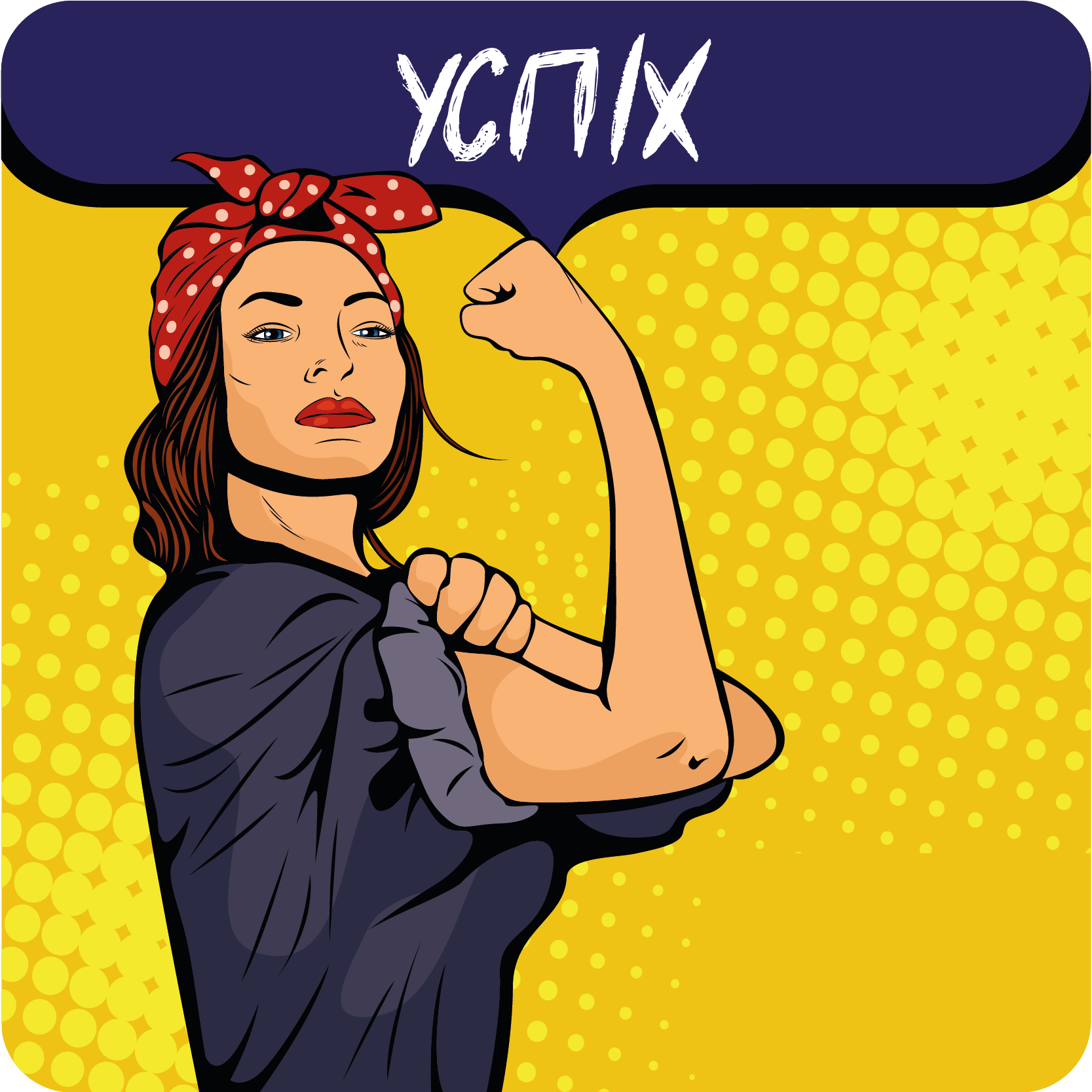
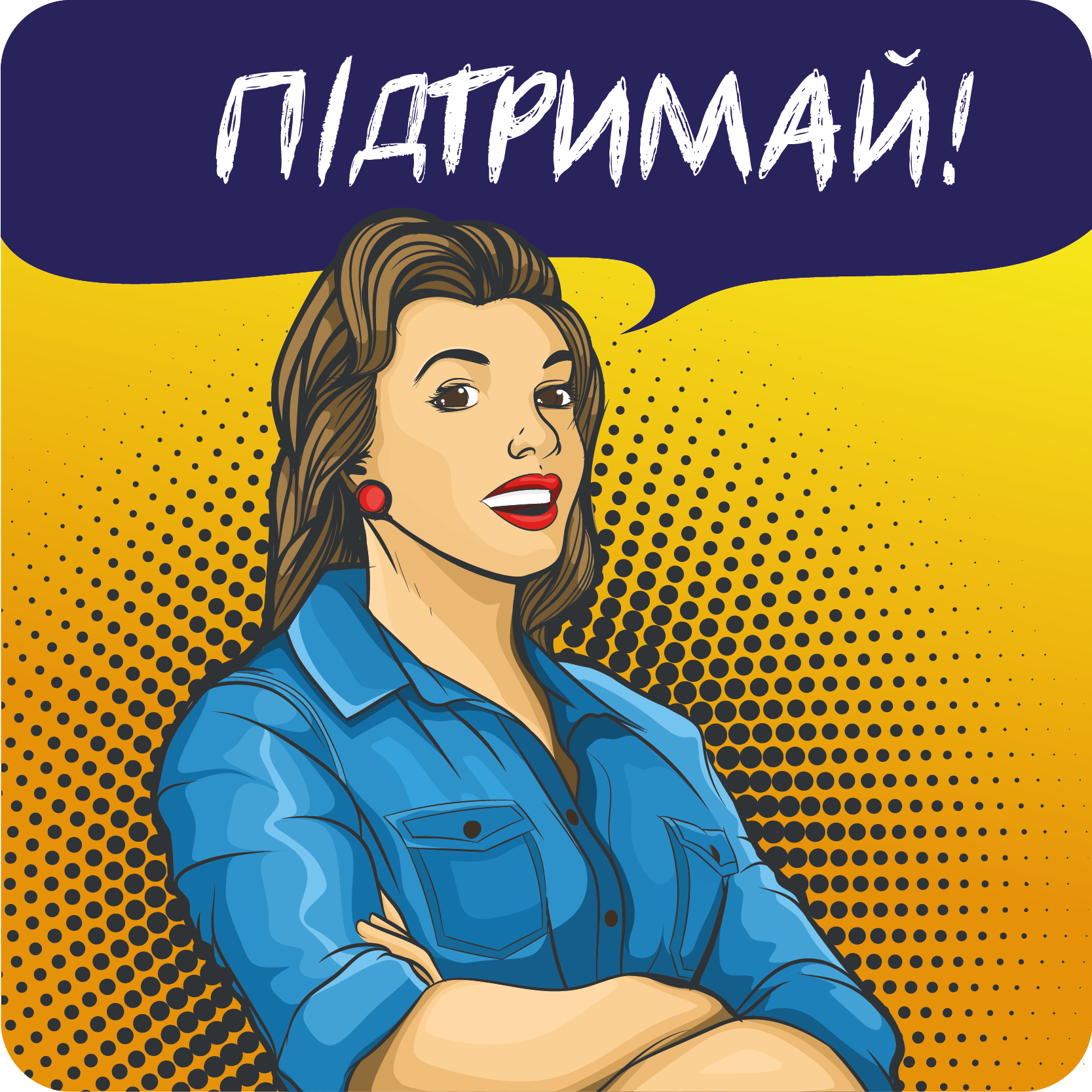


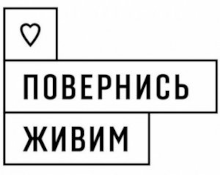
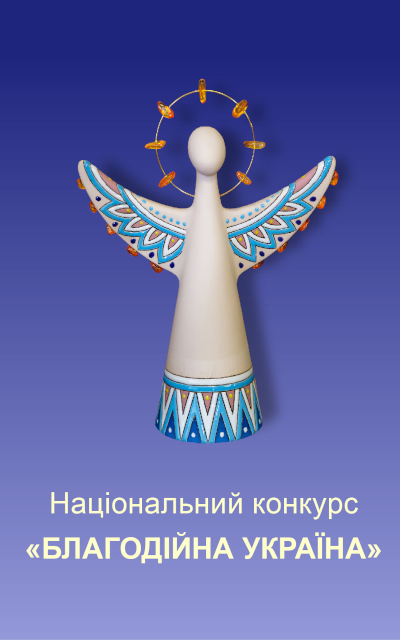

Коментарі